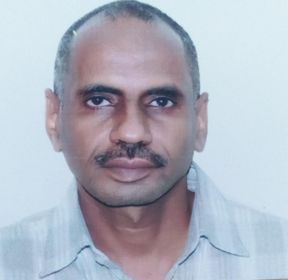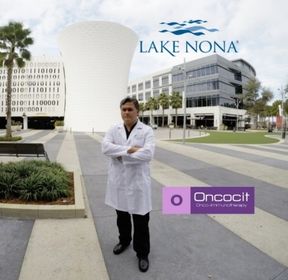Speakers
Ayman A Elshayeb
Bisha University SudanTitle: “Innovative Strategies for EmergiZoonotic Tuberculosis Implementation Combats in Sudan"
Abstract:
Abstract:
Introduction: Sudan is at great risk of tuberculosis, spread and transmission of the disease was affected by; medical, environmental and economic issues. The disease total estimations were 200,000 cases with 200 new infections annually include 1.9% M.D.R tuberculosis and 20.0% were previous treated patients.
Objectives: This research was conducted to implement new strategies for eliminating tuberculosis considering novel methods as an alternative inexpensive system for zoonotic transmission ‘One Health’ control.
Methodology: Establishment of system for tuberculosis transmission at national level policy for treatment, vaccination and prevention by administering regular evaluation of the disease situation and control. The required strategies applied for conceptual implementation research were; 1- Outer settings (Environment, Economic, social and political contexts). 2- Inner setting (Context within research for implementing intervention of community health).
Results: Conceptual framework was informed by a combination of the general program logic model, the health system framework of the W.H.O, the pillars of the Sudan health agenda, and the framework of the Strategic Elimination Plan. It is posited that the reduction of TB burden at the national level is preceded by improved case-finding and case-holding practices. It is conceivable that, although outbreaks may occur periodically, the control of disease might be easier to overcome than direct medication.
Conclusion: Principal finding was the continual emergence of diseases and the majority of new infected patients have been proved. The project remained as enduring point of reference for ‘One Health’ agenda that emphasise the importance of detecting tuberculosis and promoting the creation of collaborative networks.
Biography:
Sudan is at great risk of tuberculosis, spread and transmission of the disease was affected by; medical, environmental and economic issues. The disease total estimations were 200,000 cases with 200 new infections annually include 1.9% M.D.R tuberculosis and 20.0% were previous treated patients.
RAMON ERNESTO GUTIERREZ SANDOVAL
CSO , MD UsaTitle: Role of personalized immunotherapy with dendritic cell exosomes, in COMBINED THERAPY for Cancer: ONCOVIX Program
Abstract:
Introduction Combined Therapy (cancer treatments with different therapeutics mechanisms) is positioned as the new therapeutic way; obtaining results with higher overall survival and higher disease-free survival rates. It is in this context, where the immunotherapy incorporates powerful anti-tumor mechanisms, and even more so in its biological variant, of pulsed dendritic cells, with a very low rate of adverse reactions and highly customizable, whose biotechnology obtained the Nobel Prize in 2011 and FDA approval since 2010 . Conclusion Immunotherapy with pulsed dendritic cells allows new anti-tumor mechanisms not included in conventional therapies such as surgery or chemotherapy, corresponding to the recovery, correction, enhancement or installation of anti-tumor mechanisms by our own immunity, valid in solid tumors and leukemias (in newest versions), age and progression phase, which in turn is enhanced with target therapies. It is developed essentially from a blood sample from the patient and a biopsy sample of the cancer to be treated. It is a feasible, validatable, perfectible treatment, of safe application and reasonable effectiveness, especially in its 3rd generation (or next generation), 15 to 20 times more effective than the 1st generation, with specific management of molecular signals 1, 2 and 3 of type 1 immunopolarization of CD4 + T cells and efficient cytotoxic responses of cytotoxic CD8 + T cells (CTL), thus ensuring antitumor programming and avoiding immune weakening or immunosuppression. The greater complementary effectiveness of pulsed dendritic cell immunotherapy is favored by a use close to the diagnosis of cancer, reduction of tumor mass prior or simultaneous with conventional therapies (surgery, chemo and radiotherapy) programming with optimal stimulation signals, enhanced pulsation, use of exosomes, monitoring via flow cytometry and specialized logistics, in an innovative home care
Biography:
Dr. Ramón Gutierrez is MD by U. de Concepción and pathologist from University of Chile. In USA he holds an MSL; Medical Science Liaison degree from UC Berkeley. In Spain he obtained a Master's Degree in Clinical Oncology from the University of the Basque Country and a Master's Degree in Molecular Oncology from the Center for Biosanitary Studies (CEB) and Rey Juan Carlos University program. He is founder of Bioclas Histopathology Laboratory (bioclas.cl), RECELL Cancer Center in Chile (recell.cl). Biogenica Consortium in Panama (biogénica.org). Currently, is a CSO of Oncocit LLC in USA (oncocit.com) based in Lake Nona medical city of, in Orlando, Fl. His work and research in cancer has been supported by eligible funds from the Chilean government, along with assistance from Universities. He has specialized in the clinical treatment of adoptive immunotherapy for cancer through 3rd generation dendritic cell vaccines, with more than 2,500 applications per year for patients in 24 countries in Latin America
Apoorva Verma
National Pirogov Memorial Medical University UkaraineTitle: CLINICAL RESEARCH ( ENDOCRINOLOGY
Abstract:
Abstract – A plethora of hormones regulate many of the body’s functions, including growth and development, metabolism, electrolyte balances, and reproduction. Numerous glands throughout the body produce hormones. The hypothalamus produces several releasing and inhibiting hormones that act on the pituitary gland, stimulating the release of pituitary hormones. Of the pituitary hormones, several act on other glands located in various regions of the body, whereas other pituitary hormones directly affect their target organs. Other hormone-producing glands throughout the body include the adrenal glands, which primarily produce cortisol; the gonads (i.e., ovaries and testes), which produce sex hormones; the thyroid, which produces thyroid hormone; the parathyroid, which produces parathyroid hormone; and the pancreas, which produces insulin and glucagon. Many of these hormones are part of regulatory hormonal cascades involving a hypothalamic hormone, one or more pituitary hormones, and one or more target gland hormones.
Biography:
Apoorva Verma is an 4th year medical student of National Pirogov Memorial Medical University, Vinnytsia, Ukraine from India.



